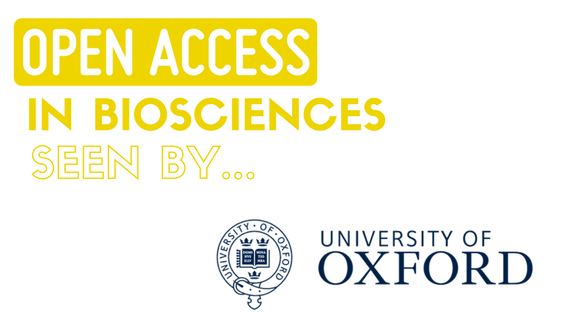How do you understand Ethics in biosciences research? Ethics in biosciences research should be understood as means to ensure high-quality research and guarantee the protection of fundamental rights. Even though ethic principles are well defined and established, as biosciences research progresses, new ethical conflicts may arise. All biosciences research must be carried out within the good practice framework that Ethics represents. What are the current standards and actions to achieve better Ethics in your University and in your country? In the case of human subjects’ research, all research conducted on National Health Service (NHS) patients or their information must be approved by the Research Ethics Committee (REC) of the National Research Ethics Service (NRES) which coordinates RECs across the UK. If the research does not include NHS patients or their information, the University of Oxford has its own system of research ethics governance: the Central University Research Ethics Committee (CUREC). The majority of approvals are decentralised to Interdivisional RECs, and then to Departmental RECs. In the case of research conducted on animals, the UK has strict regulations that are overseen by the Home Office Department of the Government. Researchers must be trained and be granted a Home Office License in order to be able to conduct research on animals. What are you aiming for with the implementation of the STARBIOS2 actions towards better Ethics standards for your institute? In relation to Ethics, our strategy is to raise awareness and evaluate the procedures for planning and including research ethical issues in …
Education as a key RRI issue, seen by the University of Oxford
How do you understand Education in biosciences research? Science education is a key element of Responsible Research and Innovation (RRI) framework. The aim is to better connect science and society through various educational approaches and interventions. This is particularly important in biosciences, which can help address some of the key societal challenges identified in Horizon 2020, including health, demographic change and wellbeing as well as food security, sustainable agriculture and forestry, and the bioeconomy. What are the current standards and actions to achieve better Education in your University and in your country? NIHR Oxford BRC Research and Education Working group offers a variety of opportunities for training aimed to increase the research capacity of those working in the NHS. There are research Grand Rounds (lectures) for nurses and weekly newsletters to raise awareness of internal and external funding opportunities. The University of Oxford also hosts the Oxford University Clinical Academic Graduate School, which offers an academic foundation programme and Academic Fellowships. What are you aiming for with the implementation of the STARBIOS2 actions towards better Education standards for your institute? There are many educational opportunities at the University of Oxford via departmental seminars and training programmes associated with the NIHR Oxford BRC. We aim to identify the most appropriate avenues to disseminate RRI. These opportunities will fit into the delivery mechanism of the educational programmes, the local entrepreneurial milieu, and focus on the work of the NIHR Oxford BRC. What kind of actions are you going to establish to …
Open Access in Biosciences, seen by the University of Oxford, UK
How do you understand Open Access in biosciences research? Open access is a way of eliminating permission and price barriers in order to guarantee free access to biosciences research publications. Open access means that the public can access your work. This facilitates greater exposure and higher citation rates because researchers from other countries can view your work. What are the current standards and actions to achieve better Open Access in your University and in your country? The University of Oxford is very committed to open access and has a webpage dedicated to explaining the University’s position: http://openaccess.ox.ac.uk/ – policy and information. As researchers are actively encouraged to publish open access, this requires a collaborative project that involves many departments such as Research Services, Bodleian Libraries, IT Services, Planning and Resource Allocation Section, Oxford University Press, and Academic Divisions. There is also an open access policy in institutions of higher education throughout the United Kingdom due to the Research Excellence Framework (REF). In order to receive higher education funding (HEFCE), REF requires journal articles to be made Open Access. The aim of the policy is to increase the amount of UK research which is freely available – and more articles open access means higher REF scores in 2021. What are you aiming for with the implementation of the STARBIOS2 actions towards better Open Access standards for your institute? The University of Oxford is a leading institution in open access and led a strong communication strategy to engage researchers. We aim to …






